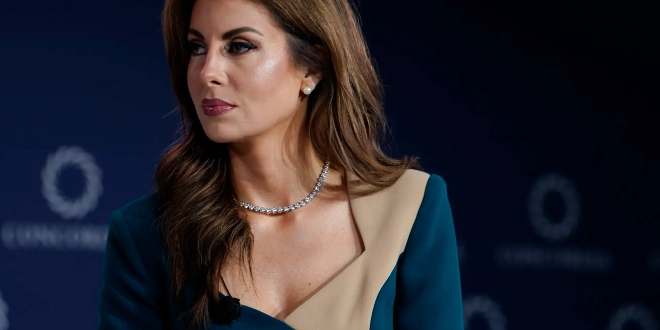Lebanon’s Parliament Speaker Nabih Berri expressed satisfaction over Israel’s reported disapproval of the expected replacement of U.S. Deputy Special Envoy for the Middle East, Morgan Ortagus. Speaking to local newspaper al-Joumhouria, Berri remarked that Israel’s dissatisfaction alone justified his approval of the personnel change.
Berri, a longtime political figure and head of the Amal Movement, appeared to invoke the principle that an adversary’s displeasure can validate a position. This approach has previously influenced his views, particularly regarding international peacekeeping forces operating in southern Lebanon. He has defended the United Nations Interim Force in Lebanon (UNIFIL), noting that Israeli hostility toward the mission reinforced its importance from Lebanon’s perspective. According to Berri, Israeli forces have previously targeted UNIFIL, which he cited as further justification for maintaining the peacekeepers’ presence.
Ortagus Departure Draws Reactions from Both Sides
Morgan Ortagus, who had been involved in key U.S. policy initiatives concerning Lebanon and the broader Middle East, is reportedly preparing to leave her current position and transition to another role within the administration of former U.S. President Donald Trump. Ortagus, known for her strong pro-Israel stance, has played a vocal role in advocating for the disarmament of Hezbollah and limiting its political influence in Lebanon.
Israeli media reports have characterized Ortagus’ departure as unfavorable for Israeli interests. She has been recognized in Israel for actively supporting its security concerns and for her efforts to press U.S. policy objectives that challenge Hezbollah’s military and political presence in Lebanon.
Her visit to Lebanon earlier this year drew criticism for remarks made at the presidential palace in Baabda, where she praised Israel for its efforts against Hezbollah and insisted the group should not be part of Lebanon’s next government. These comments, made during her February trip, sparked immediate distancing by the Lebanese Presidency, which released a statement clarifying that her comments reflected her personal views and not the official stance of the Presidency.
Public Spats and Diplomatic Shifts
Following her controversial visit, Ortagus engaged in several public exchanges on social media. She reposted statements from Hezbollah’s Deputy Secretary General Sheikh Naim Qassem, adding a dismissive reaction. Additionally, she responded to criticism from veteran Lebanese political figure Walid Jumblat—who had labeled her policy expectations as unrealistic—with a derogatory remark, further straining her public image in Lebanon.
Meanwhile, Lebanese newspaper al-Akhbar reported that Lebanese Army Commander General Joseph Aoun had privately expressed concern over Ortagus’ tone and approach in discussions with U.S. officials. The report suggested that her assertiveness may have been counterproductive in delicate diplomatic contexts.
Speculation about Ortagus’ successor has focused on Joel Rayburn, a senior American diplomat with a reputation for firm positions on Iran and Syria. Rayburn has been closely involved with U.S. policy on Syria for over a decade and is considered a strong advocate of limiting Iranian influence in the region. His potential appointment may signal continued U.S. interest in containing Hezbollah and monitoring developments along Lebanon’s southern border.
As diplomatic alignments shift and appointments evolve, Lebanon remains a focal point in regional power dynamics. Reactions to personnel changes in Washington underscore the deeply intertwined nature of Lebanese domestic politics, regional alliances, and the broader geopolitical strategies of external powers.


